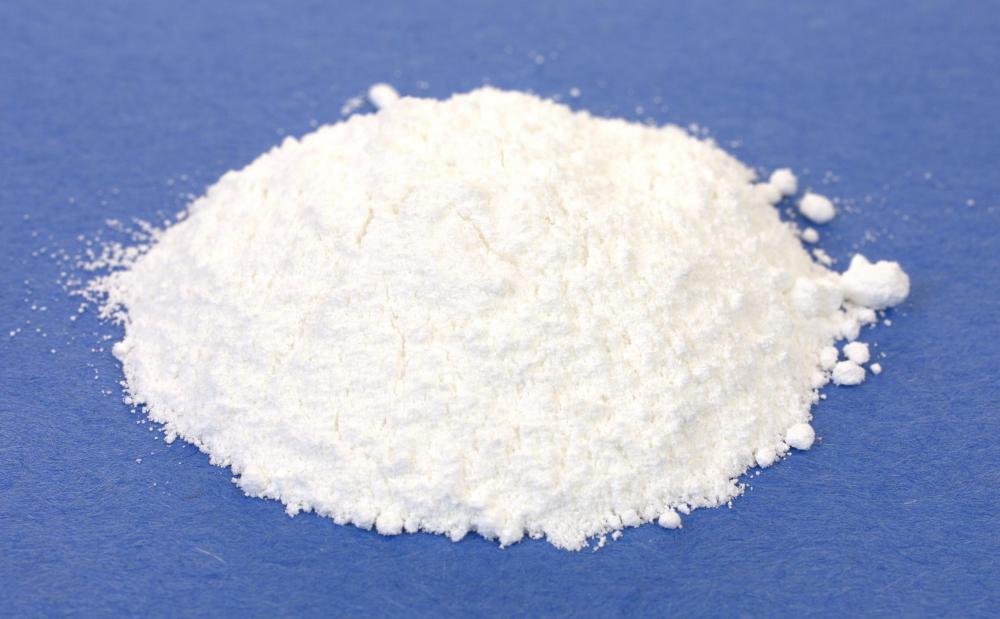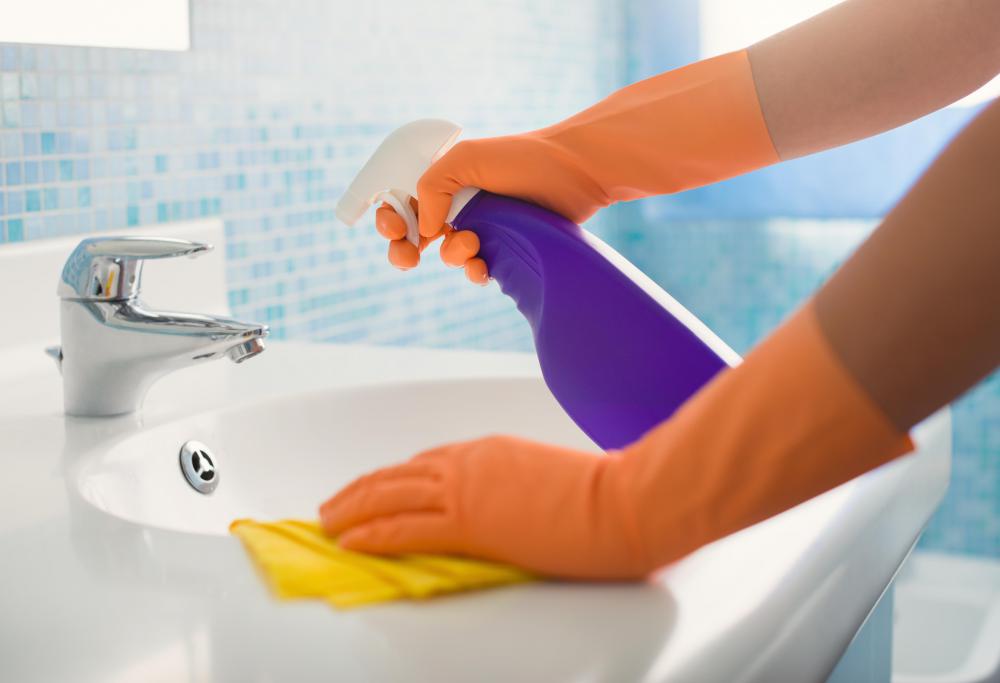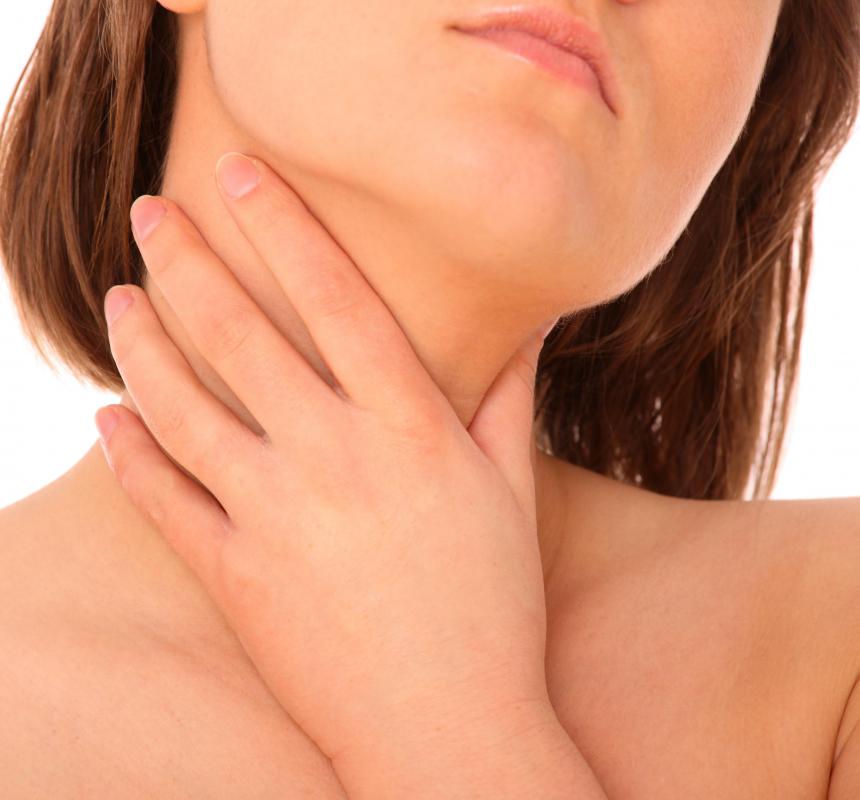At BeautyAnswered, we're committed to delivering accurate, trustworthy information. Our expert-authored content is rigorously fact-checked and sourced from credible authorities. Discover how we uphold the highest standards in providing you with reliable knowledge.
What is Cetylpyridinium Chloride?
Cetylpyridinium chloride (CPC) is a chemical that destroys or cleanses harmful bacteria from organic surfaces. It is often found in various oral sprays, mouthwashes, and lozenges, as well as some other types of surface disinfectants. The human throat, nostrils, and mouth are lined by mucous membranes, which can absorb an array of potentially harmful germs, chemicals and viruses. An antiseptic such as cetylpyridinium chloride can permeate the mucous membranes and potentially inhibit the growth and spread of these infectious substances.
Microorganisms that irritate and multiply in moist tissues are generally airborne, though they can be transmitted through contact with various foods, drinks, or items introduced to the mouth or nose such as straws or fingers. Infection symptoms in mucous membranes often include inflammation, discoloration, or foul odor. In the mouth and nose, these symptoms can also manifest as plaque on teeth, gingivitis around the gums, sore throat, or sinus infections.

CPC uses lymph — the fluid found between the cells — to travel through layers of skin and disrupt the membranes of smaller infectious organisms, which have fewer cells than human tissue. In small doses, cetylpyridinium chloride, along with some other chemicals, is able to kill the harmful bacteria without causing permanent damage to the affected tissue. Small amounts of this chemical are often included in many oral care products, such as mouthwashes, toothpastes, lozenges, and various sore throat treatment sprays.

It is not uncommon for rashes, skin irritation, nausea, or bleeding to occur when using CPC in large quantities. Many symptoms of overexposure to cetylpyridinium chloride can mirror the symptoms of the bacteria that initially infected the area. Further examples of possible damage can include brownish discolorations on teeth, epidermal swelling in areas exposed to the chemical, prolonged numbness, burning sensations, and trouble breathing. Other, far more serious symptoms can include ulcers in the mouth or throat, permanent lung damage, convulsions, and paralysis.

In its purest form, cetylpyridinium chloride is a fine white powder without taste or odor, which can be lethal if inhaled or ingested. In addition to its toxicity, the chemical is combustible and should be kept away from sources of heat or areas where sparks might be present. Some cleaning products, shampoos, and fabric softeners might also contain CPC. To properly handle any product containing CPC, always read and follow directions included on the packaging. Gloves or masks should be used to prevent or minimize skin contact when indicated.
AS FEATURED ON:
AS FEATURED ON:


















Discussion Comments
The reason you shouldn't swallow toothpaste is to keep you from ingesting too large of a dose of fluoride, not CPC.
@lighth0se33: Don't overmedicate yourself either. Try xylitol "candies" which are sugar-free and great for giving bacteria indigestion and messing with their adherence capabilities to your teeth. Then it can be easier for your body to fight back.
The fluoride in the toothpaste is what you don't want to swallow.
The fluid found between the cells - that's called interstitial fluid, which is very different from lymph.
I think it's more the fluoride in toothpaste that creates the ingestion concern.
@StarJo – It can be tempting to over-medicate when you have a bad sore throat. I know how your husband feels. I currently have strep throat, and I would do just about anything to get some relief.
Right now, I'm keeping lozenges in my mouth. They contain CPC, and I think that if even a small amount of it might do me some good, I am going to keep popping them like happy pills.
They are so small that I don't think it's possible to eat too many of them. They keep my dry throat moisturized and make it easier to swallow.
I bought a special mouthwash for my child that is meant to attract bits of food that she missed when brushing. The magic ingredient is cetylpyridinium chloride.
The CPC binds to the debris in the mouth, and when she spits it out, she can actually see how much she missed. So, it helps her become more determined to do a better job of brushing, but it also gets rid of whatever got left behind.
It has such a low amount of CPC that I don't worry about it being dangerous or staining her teeth. I think it is only doing good things for her.
When my husband got an upper respiratory infection and a sore throat, his doctor recommended that he use a CPC mouthwash. She gave him antibiotics as well, but she thought the direct contact with the throat might help.
He told me that the mouthwash tingled and burned a little in his mouth and throat. It did feel like it was working, though.
He was tempted to use it every few minutes to relieve the pain, but I told him that too much CPC could do more harm than good. The doctor had instructed him to use it only three times a day.
That's neat that CPC uses the body's own fluid to hitch a ride on and deliver its poison. I had no idea it was so potent and could be very toxic.
I have noticed that my toothpaste says to keep it out of reach of children. I found this strange, since kids should be encouraged to brush their teeth, but I guess they mean small children who might swallow it for fun.
The CPC in toothpaste must be the reason why my parents always told me not to swallow it. Regardless of what flavor we bought, it always tasted strong, and swallowing it might have resulted in ulcers or burning.
Post your comments